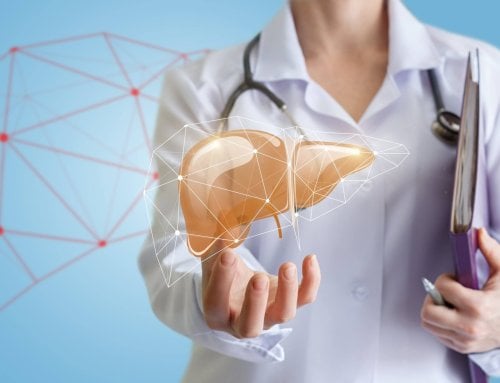A few years ago, on a four-day weekend, we were lucky enough to head down to the Florida Keys for a little rest and relaxation. After arriving late at night, we planned our next day events which included plenty of water activities and sunshine. Unfortunately, I woke up with left-sided facial swelling accompanied by severe pain and numbness. I often over analyze a medical situation since I am a registered nurse and many times, I fear the worst; I also know facial numbness is a possible symptom of a stroke, so I chose the emergency room for a proper diagnosis. For one thing, there were no urgent care or walk-in clinics in this area of the Florida key, so this was really my only choice.
What was the diagnosis?
Luckily, it was only a parotid stone (a stone usually made of excess minerals lodged in the salivary gland) which just kind of happens to people, like forming a kidney stone. The treatment was fairly simple; drink copious amounts of water, suck on sugar-free lemon drops and apply ice packs until it resolves. The physician also considered antibiotics since it could have also been a tooth abscess. I decided to skip the antibiotics until I visited my dentist who also felt it was a parotid stone. After 24 hours my face was back to normal, so I guess I did pass the stone, but I do wish I at least had the opportunity to visit an urgent care center or something less critical than an ER. Between the wait time I experienced and the final whopping bill, I understand why there are so many urgent care centers popping up!
Why and when are people with diabetes more at risk for infections?
Having diabetes, especially if uncontrolled, may present some unexpected medical issues directly related to diabetes or a completely unrelated medical problem. When diabetes is uncontrolled with elevated blood sugars, white blood cells do not function as they should; this sets you up for a higher risk of infections. It could be a critical decision deciding where to go for your emergency issue. Let’s look at some of the differences between an urgent care center, a walk in-clinic, a 24-hour nurse line and an emergency room.
Emergency verses Urgent
According to Shawn Evans, an emergency room physician at Scripps Memorial Hospital in La Jolla, California, “recognizing the difference between an ‘emergency’ and ‘urgent’ can be confusing since they both indicate a medical need that should be addressed quickly. The distinct differences include the level of care at each facility”. Always dial 9-1-1 if you think the medical problem is life-threatening.
Urgent Care Centers
Urgent care centers started to evolve in the 1990s and have recently flourished. They generally treat non-life-threatening conditions, have lab testing, offer in-house blood work with immediate results and may even provide imaging services. Most facilities provide simple x-rays, bone densitometry and ultrasound. Some even offer mammography and the capacity to perform MRIs and CAT scans, similar to a full-service hospital. An urgent care center is an excellent place to visit if your regular physician is not available, or if you suddenly become ill or suffer from an injury during the evening, night or weekend.
An urgent care center allows you to walk in without a scheduled appointment, provides easy access, and takes you in the order you sign in. They are generally staffed by emergency physicians, regular general internists as well as nurse practitioners and physician assistants. An urgent care center does not require a physician’s referral. They usually operate from 9AM – 9PM, Monday through Friday, 9AM – 6PM on Saturday and 9AM – 5PM on Sunday. You should be aware of the center’s hours near you and post them on a bulletin board or in your phone. There are certain appropriate times to go to an urgent care center over an emergency room instead of just trying to treat your issue at home.
Non-life-threatening conditions:
- pink eye, eye irritation, tearing or redness in the eye
- dehydration
- seasonal allergies
- insect bites
- urinary tract infections
- vomiting
- ear pain, ear aches and sore throats
- acute diarrhea
- minor athletic injuries
- falls and minor accidents
- simple broken bones-fingers and toes
- sprains and strains
- superficial cuts
- splinters
- sore throat, cough, sinus problems
- skin rashes
- fever and congestion
- flu-like symptoms
- minor burns
It is generally better to contact your primary care doctor or endocrinologist when you have reoccurring chronic infections such as yeast infections, skin fungus or UTIs, because out of control blood sugars. They have your complete medical history on file and know which treatment has worked for you in the past. Try to stock extra medications, antibiotics or prescriptions at the pharmacist to keep costs down and keep you out of the doctor’s office for reoccurring infections.
How much does an urgent care clinic charge?
The bill for an urgent care center visits usually runs between $50-150, per visit. It depends if you are paying through insurance and what your co-payment is. Make sure the urgent clinic is “in network” or part of your current insurance plan. “Out of network” clinics will incur more out of pocket costs for you. Call the customer service number on your card, if you have a question concerning the clinic acceptability, based on your insurance plan. If you do not carry health insurance you will be charged extra for x-rays, lab and blood work, but it will be far less expensive compared to the E.R.
Many urgent care centers are now offered through specific hospitals, so if you are familiar or comfortable with that hospital’s reputation, that may be a good fit. Usually, urgent clinics associated or affiliated with a hospital have higher fees than a physician practice urgent clinic or a chain urgent clinic; other urgent care centers are privately owned or are affiliated with chains.
According to Holy Cross Hospital in south Florida, “the majority of people who go to the E.R. don’t really have true medical emergencies and may pay up to 6 times the cost compared to an urgent care center”. The wait time will generally be longer in an E.R. as well when you are not critically ill. Not only will a good decision save you money, but it will save the health care system money as well; this will hopefully come back to you in the end through lower insurance rates.
Some major chain urgent care clinics (available in the US):
- Med Express
- Doctor’s Express
- US Healthworks
- Next Care Urgent Care
- Fast Med Urgent Care
- HCA Care Now
- City MD/Premier Care
- Care Spot Express Health Care
Walk-in or minute clinics
Walk in clinics or minute clinics are usually available in pharmacy chains, grocery stores, retail chains and big box stores. They are generally staffed by nurse practitioners or physician assistants who will not have all the resources offered by an urgent care center or hospital E.R. Walk in clinics are especially good for:
- School, camp, sport, work physicals
- Flu, pneumonia, shingle shots
- simple colds, sore throats, coughs
- stomach bugs
- minor skin irritations
They will be able to prescribe what is available in the pharmacy even if it requires a prescription or for OTC products; the cost is the most reasonable. Health insurance usually covers vaccines in minute clinics or walk-in clinics.
24-hour nurse lines
Some insurance plans provide a free 24-hour/ 365-day a year, registered nurse information line for simple and general questions. Use them if you think that is all you need. They can:
- provide information to help you better manage your diabetes and answer other simple medical questions
- help you with basic information about your medication and side-effects
- recommend when you may need additional medical follow-up care
- discuss self-care home treatments
- offer wellness information
- provide physician resources
- suggest support groups, free medical lectures or health fairs
- recommend free Silver Sneaker exercise programs
True medical emergencies
Most people often sense “a true medical emergency” just from an instinct but never try to second guess what you actually need. If you are not sure, ask for help from a significant other, family member, friend or co-worker. They may be aware of symptoms that you are not.
When should I call 9-1-1?
Many people feel unsure, uncomfortable or silly calling 9-1-1 because they do not think they are sick enough. This could result in a serious risk to your health with a poor outcome. Never second guess your symptoms.
Call 9-1-1 if you are experiencing any of these symptoms:
- chest pain, chest tightness, back pain, jaw pain, profuse sweating, indigestion, nausea, or arm pain, consider a myocardial infarction-MI or heart attack – call 9-1-1.
- severe bleeding or moderate to severe burns – call 9-1-1.
- sudden confusion, visual disturbances, sudden weakness, loss of vision, slurred speech or one-sided facial numbness and weakness, consider a stroke – call 9-1-1.
- If someone losses consciousness, suffers from seizures or convulsions – call 9-1-1
The paramedics will arrive and start performing life saving measures in your home followed by the ambulance ride, which may literally save your life. No one will ever condemn you if you have gastric reflux (symptoms may mimic an MI) instead of a heart attack, but you will be the one who suffers if you guess wrong.
Emergency rooms (ER)
Emergency rooms are open 24 hours a day and 365 days a year and are staffed with ER physicians and nurses who specialize in true emergencies. They are prepared for the most complicated emergencies with access to all specialists as well as all medical equipment and testing. The ER is contained within the actual hospital. If you choose to go to the emergency room, it should be utilized for a true medical emergency.
Medical emergencies include:
- chest pain, tightness, clammy, sweaty skin, jaw, left arm/ shoulder or back pain
- seizures and convulsions
- accidents with trauma
- changes in mental states, acute changes in balance
- sudden numbness, weakness or paralysis, speech slurring
- a compound fracture where a bone is protruding through the skin
- total visual loss
- visual changes or disturbances
- racing heart with palpitations-heart arrythmia
- knife wounds, gunshot wounds
- severe burns
- severe hypoglycemia with unconsciousness, diabetic coma-DKA
- blood sugars over 350mg/dl (discuss with your physician. They may suggest a different value.)
- severe nausea, vomiting
- head injuries, severe headaches
- severe bleeding that requires surgery and stitches
These medical conditions will require further testing, monitoring and more intensive care with specialists. The cost of an E.R. visit can start at about $650 and go up to thousands of dollars. When experiencing a life-threatening crisis, finances should not be your priority. The ER staff must accept any emergency patient, regardless of their insurance situation. The E.R. staff will triage you (put patients in the order of the most serious symptoms) not in the order you arrive. After you are home, hospital billing services will work with you on most costs and final bills; they will let you pay them off gradually, based on your personal financial situation, instead of paying the entire bill at once. Always feel free to check, analyze and discuss your final bill for details even when your insurance is solely responsible.
Conclusion
Please consider these recommendations as “guidelines” and in no way make them your final decision in which facility you should visit for your medical conditions. You must make the best decision based on your individual needs. Neither an E.R., walk-in clinic or urgent care center should be your first choice to treat chronic illness including diabetes, heart disease or hypertension. Your primary care doctor, endocrinologist or cardiologist should be following up every 3-4 months with routine blood work and a physical exam. They have your complete history and are most familiar with your personal needs and problems. People with diabetes are at a higher risk for possible complications including a heart attack, stroke or acute infections and that is when the best option would be the emergency room. Be your own best advocate and know all your available options!
NOTE: Consult your Doctor first to make sure my recommendations fit your special health needs.













Roberta, thank you for explaining the different types of medical care and their benefits. I like how you said that an urgent care center allows you to walk in without scheduling an appointment and gives you easy access to reliable medical care. My sister’s son is sick and wants to find good medical care for him, so I will suggest that she take him to an urgent care center.
It’s good to know how much urgent care clinics charge. My sister is moving to a new area. This info should help her determine when to use urgent care or the ER in her new city.
I think it’s important to remember that going to the urgent care for chronic non emergency issues should be avoided. This is super important even if you can’t get in right away and get inpatient like I do sometimes. I love that you discuss all the things that Nurses can do on the 24 hour hotlines. I feel like many don’t realize they have this benefit with their insurance and can be so much cheaper than a visit to the doctor.
I like how you mentioned that an urgent care clinic a great option for when your regular physician isn’t available or if you have a sudden need for medical services that aren’t too severe such as a cold or cut. People who need just basic medical services should go to a clinic because it is more practical and cheaper than the emergency room. Thank you for talking about some of the benefits of going to a medical services clinic.